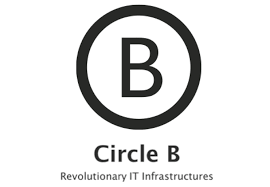Amsterdam-based Circle B develops fully tested data centre and telco solutions based on OCP.
The Open Compute Project Foundation (OCP) welcomes Circle B as an OCP Solution Provider. This makes Amsterdam-based Circle B the first European channel partner to have acquired this status. Solution providers form a special group of companies within the OCP ecosystem. They develop, test, deliver and support ready-made systems and environments based on OCP designs. According to recently published market research by IHS Markit, revenue generated from OCP equipment from non-board member companies reached $1.2 billion in 2017. For the coming years the researchers predict an average growth for the European market of 70% per year.
The Open Compute Project was founded in 2011 by Facebook, Intel and Rackspace. The goal of the organization is to apply open source principles to hardware intended for use in data centres and telecommunication facilities. OCP members can publish their own hardware designs via OCP. Other participants are allowed to use these designs for building and marketing their own products. But they can also further develop these designs. In this way OCP hopes to achieve faster innovation in the field of IT hardware.
Hyperscalers
Many of the designs that are made available via OCP come from so-called hyperscale companies like Facebook and Microsoft. They have built very large data centres that use many hundreds of thousands of servers. The in-house development of hardware offers these companies important technical and financial advantages, such as lower energy consumption per individual server, and a drastically simplified systems management, allowing one administrator to manage a factor of 100 or 1000 more servers than in a classically designed data centre.
10 or 20 racks
While we do not have data centres in Europe with a scale close to Facebook or Google, many European companies and government agencies can also achieve significant benefits by using OCP-based equipment. Think of telecom providers, banks and others. “The size of the data centre is not so important in this respect”, says Menno Kortekaas, Chief Technology Officer of Circle B in Amsterdam. "In server rooms where 10 or 20 racks are installed, OCP already offers interesting financial advantages. Working with OCP hardware is very attractive for European companies and government organisations as well.”
Technical knowledge
However, it requires a relatively large amount of technical knowledge to start working with OCP designs. Even if a hardware manufacturer has already made a product based on such a design.
Kortekaas: "A design by Facebook, for example, for - say - an open source switch has of course been set up with their own network infrastructure in mind. In order to be able to apply such a design in the data centre of a European bank or telco, more is needed than just a hardware product. Often some extra work is needed to change the firmware, for example. Or there is no web interface for the management software, simply because Facebook doesn’t need such an interface. Business organisations often state in their purchasing terms that they only buy ready-made products. It is therefore important that an OCP Solution Provider helps to make the product fully suitable for use in the data centre of such a company.”
No R&D or DevOps
"A Solution Provider ensures that data centres, telcos and IT departments that do not have their own R&D or DevOps department can still benefit from the advantages that OCP designs have to offer," says John Laban, European representative of Open Compute. "An OCP Solution Provider such as Circle B has the technical knowledge to make sure that an OCP design or a product based on an OCP design properly integrates into a company's IT infrastructure.”
European strategy
The OCP Solution Provider program is part of a much broader strategy of the Open Compute Project Foundation in Europe. "Europe is a very important market for OCP in terms of data centres and telecom providers," says Steve Helvie, Vice President Channel Development of OCP. "That is why we invest a lot of time and energy in developing the OCP ecosystem here in Europe. We work closely with companies that are able to support large IT organizations in exploring the opportunities offered by OCP. We also strive for a broad and varied group of partners in Europe who can help with, for example, training employees or providing support.”
OCP will be hosting its first regional Summit in Amsterdam October 1 – 2, 2018 in Amsterdam, The Netherlands, at the RAI Exhibition & Conference Center.
More information can be found here, including registration and sponsorship information: http://opencompute.org/events/regional-summit/
Learn more about Circle B here: https://circleb.eu/
